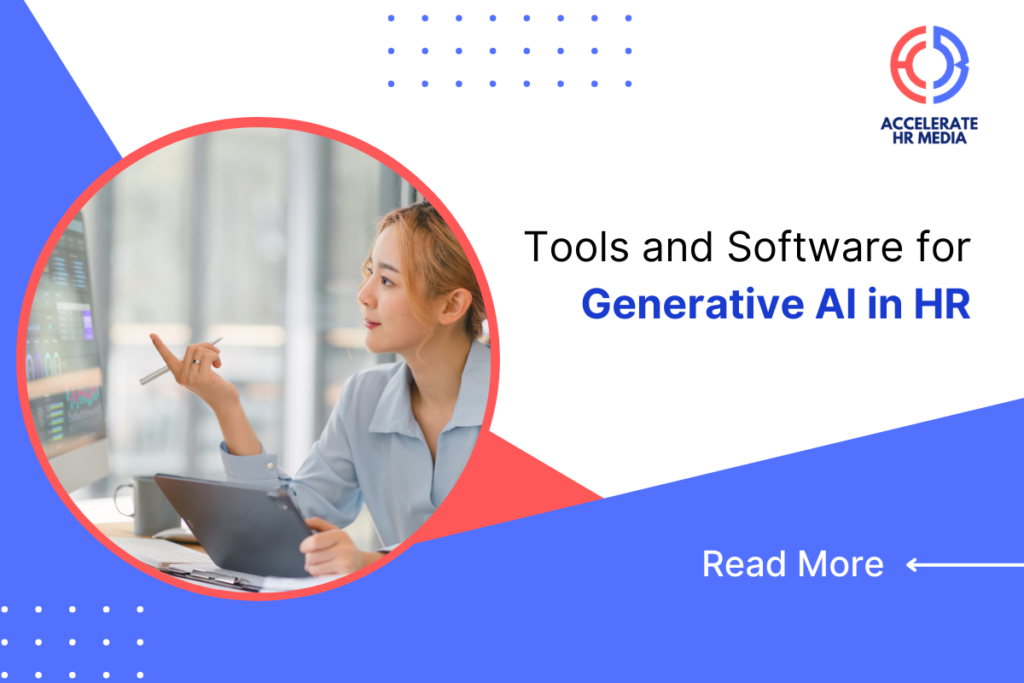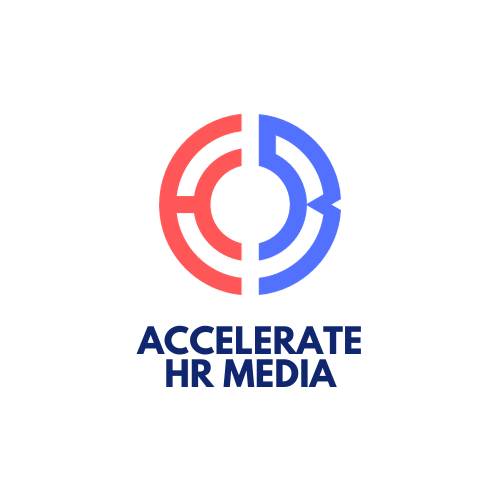
As technology continues to advance, businesses are always looking for ways to improve their operations. One area that has seen significant growth is human resources (HR). With the rise of generative AI, organizations are now able to streamline their processes, enhance employee experiences, and make more informed decisions. This blog will explore the tools and software for generative AI in HR, discussing their importance, key features, benefits, challenges, and future trends.Generative AI refers to technology that can create content, analyze data, and automate tasks. In the context of HR, this means using AI tools to improve various functions such as recruitment, employee engagement, training, and performance management. By leveraging these tools, HR teams can focus on strategic initiatives rather than getting bogged down by repetitive tasks.
Understanding Generative AI in HR
What is generative AI in HR? It involves using artificial intelligence to generate insights and automate processes within human resources. This can include creating job descriptions, analyzing employee feedback, or even generating training materials. The goal is to enhance the efficiency and effectiveness of HR operations.
How Does Generative AI Work?
Generative AI uses algorithms and machine learning models to analyze large amounts of data. It learns from existing information and generates new content or insights based on that data. For example, an AI tool might analyze previous job postings to create a new job description that attracts the right candidates.
Key Components of Generative AI in HR
- Data Analysis: Generative AI tools analyze data from various sources, including employee surveys, performance reviews, and recruitment metrics. This analysis helps identify trends and areas for improvement.
- Content Creation: These tools can generate written content such as emails, reports, and training materials. This feature saves time for HR professionals who would otherwise spend hours crafting documents.
- Automation: Generative AI automates repetitive tasks like scheduling interviews or sending reminders. This automation allows HR teams to focus on more strategic initiatives.
Importance of Generative AI in HR
The importance of generative AI in HR cannot be overstated. Here are some reasons why it is becoming essential for organizations:
- Efficiency: By automating routine tasks, generative AI allows HR teams to work more efficiently. This efficiency leads to faster decision-making and improved productivity.
- Data-Driven Insights: With access to real-time data analysis, organizations can make informed decisions based on accurate information. This data-driven approach enhances strategic planning.
- Enhanced Employee Experience: Generative AI tools can personalize employee interactions by providing tailored recommendations and support. This personalization leads to higher employee satisfaction.
- Cost Savings: Implementing generative AI can lead to significant cost savings by reducing the time spent on manual tasks and improving overall operational efficiency.
Key Tools and Software for Generative AI in HR
There are several tools and software solutions available that leverage generative AI for human resources. Here are some notable examples:
1. ChatGPT
ChatGPT is an advanced language model developed by OpenAI. It can be integrated into HR systems to assist with various tasks such as answering employee questions, generating reports, and creating training materials. Its ability to understand natural language makes it a valuable tool for enhancing communication within organizations.
2. Paradox
Paradox offers an AI-powered chatbot named Olivia that automates recruiting processes. Olivia can answer candidate questions, schedule interviews, and provide updates throughout the hiring process. This tool helps streamline recruitment efforts while improving candidate experience.
3. Beamery
Beamery is a talent lifecycle management platform that uses generative AI to enhance recruitment strategies. It analyzes candidate profiles and engagement history to provide personalized recommendations for recruiters. This helps organizations identify top talent more effectively.
4. Lattice
Lattice is an employee engagement platform that utilizes generative AI to gather feedback from employees through surveys. The platform analyzes responses to identify trends and areas for improvement within the organization’s culture.
5. Docebo
Docebo is a learning management system (LMS) that leverages generative AI to create personalized learning paths for employees. By analyzing individual learning styles and preferences, Docebo customizes training programs that align with each employee’s goals.
6. TalentGuard
TalentGuard offers an integrated talent management solution powered by generative AI. The platform provides tools for performance management, career development planning, and succession planning—all aimed at enhancing employee growth within the organization.
7. Workday
Workday is a comprehensive human capital management system that incorporates generative AI features for various HR functions. From payroll processing to talent acquisition analytics, Workday provides a robust solution for managing workforce needs.
Benefits of Using Generative AI in HR
Implementing generative AI tools in human resources offers numerous advantages:
Enhanced Efficiency
Generative AI automates repetitive tasks such as scheduling interviews or generating reports. This automation frees up time for HR professionals to focus on strategic initiatives that require human insight.
Improved Data Accuracy
By analyzing large datasets quickly and accurately, generative AI reduces the risk of human error in data entry and analysis. Accurate data ensures better decision-making across the organization.
Personalized Employee Experiences
Generative AI allows organizations to tailor experiences based on individual employee needs and preferences. Personalized training programs or career development plans lead to higher employee satisfaction and retention rates.
Cost Savings
Automating routine processes leads to significant cost savings over time. Organizations can allocate resources more effectively when they streamline operations through generative AI solutions.
Better Recruitment Outcomes
With tools like Beamery and Paradox assisting with recruitment efforts, organizations can identify top candidates more efficiently while providing a positive experience throughout the hiring process.
Challenges of Implementing Generative AI in HR
While there are many benefits associated with generative AI in HR, there are also challenges that organizations may face:
Data Privacy Concerns
As with any technology handling sensitive information, data privacy is a significant concern when implementing generative AI solutions. Organizations must ensure compliance with regulations such as GDPR while protecting employee data from potential breaches.
Resistance to Change
Introducing new technologies often meets resistance from employees accustomed to traditional methods of operation. Effective change management strategies are necessary to facilitate smooth adoption across the organization.
Integration Issues
Integrating generative AI tools into existing systems can be complex due to compatibility issues or lack of standardization across platforms. Organizations may need dedicated IT resources to ensure successful integration efforts.
Skills Gap
Implementing advanced technologies like generative AI requires employees with specific skill sets related to data analysis or machine learning principles. Organizations may need to invest in training programs or hire new talent with these competencies.
The Future of B2B Integration
As we look ahead at the future landscape of generative AI in human resources management (HRM), several trends are emerging:
Increased Adoption Across Industries
More organizations are recognizing the value of integrating generative AIs into their workflows across various sectors—from healthcare providers leveraging predictive analytics for patient care coordination to retail companies optimizing inventory management through real-time insights generated by machine learning algorithms.
Enhanced Collaboration Between Humans & Machines
The future will see greater collaboration between humans and machines within workplaces—a hybrid model where employees leverage intelligent systems while retaining control over critical decision-making processes ensures accountability remains intact even as automation increases efficiency levels significantly!
Continuous Improvement & Learning
Generative AIs will evolve over time; they will learn from user interactions continuously refining their capabilities based on feedback received—this iterative learning process will lead towards increasingly sophisticated applications tailored specifically towards meeting unique organizational needs!
Ethical Considerations
As reliance on these technologies grows—so too does scrutiny surrounding ethical implications associated with using them! Organizations must prioritize transparency regarding how decisions are made utilizing these systems while ensuring fairness remains central throughout all stages involved—from recruitment through performance evaluations!
Conclusion
In conclusion, understanding tools and software for generative AI in HR is vital for any organization looking to thrive amidst rapid technological advancements! By embracing these innovative solutions—companies can enhance operational efficiencies while improving overall employee experiences significantly!As we look towards the future—organizations must remain vigilant regarding potential challenges posed by implementing such technologies—including privacy concerns & resistance from staff members accustomed traditional methods!Ultimately—successful integration requires collaboration between stakeholders across departments ensuring everyone involved understands benefits derived from utilizing cutting-edge solutions designed specifically address unique organizational requirements!

